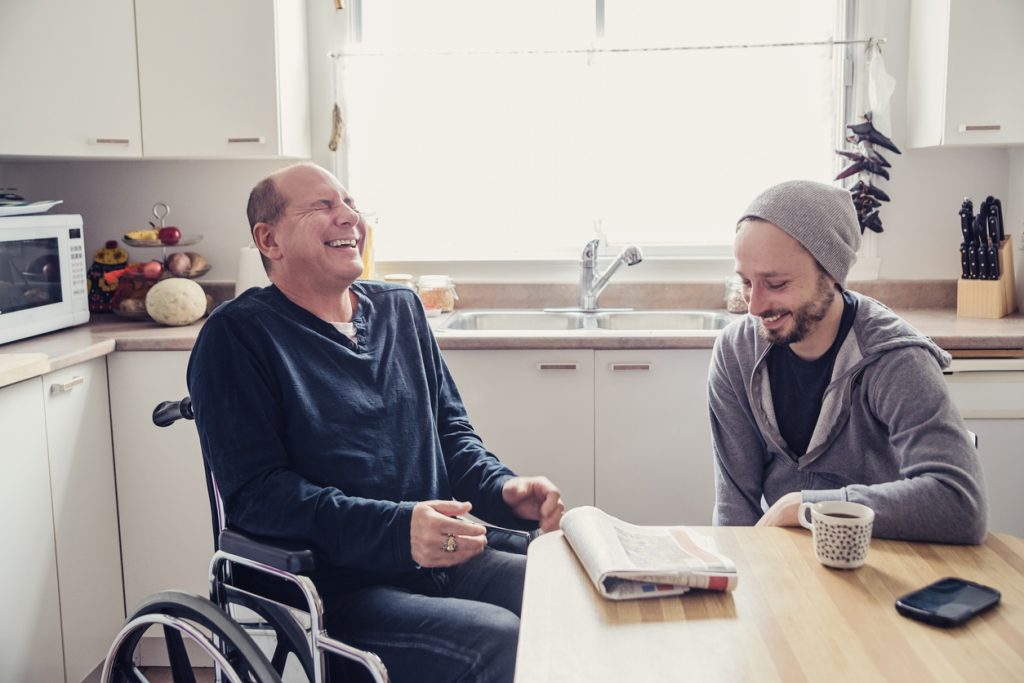10 simple strategies to reduce anxiety and depression
Since 2009, Australians have been encouraged to ask the question “RUOK?” to start a conversation and check each other on the second Thursday of September each year.
It’s also a question we can also ask of ourselves every day and keep check of our response.
If you’re not ok with how you’re feeling, then maybe a bit of self-help wouldn’t go astray.
Here’s a list of 10 simple strategies you can implement into your daily habits to help reduce the risk of anxiety and / or depression.

1. Breathe
Feelings of anxiousness can cause our breathing to quicken, disrupting our oxygen and carbon dioxide levels, increasing our heart rate, and triggering other fight or flight responses within the body. Breathing out for longer than you breathe in resets your breathing pattern. A simple technique to use is the 4-7-8 method, which has you breathe in for the count of 4, hold for the count of 7 and exhale for 8.
2. Move
Physical exercise releases feel good hormones of dopamine and serotonin, known as mood boosters. Find something you enjoy doing and get into a routine. Knowing that you have steps in place to help you keep moving and stay positive, can help reduce any feelings of uncertainty and anxiety. Endorphins released while you exercise also help to relieve physical pain and stress, which can lighten the load on your mental stress.
3. Laugh
Laughter really is the best medicine. Watching your favourite comedy or spending time with people who make you feel good, releases a huge hit of happy hormones; dopamine and serotonin, which can reduce symptoms of anxiety and symptoms of depression.
4. Journal
Taking time out at the beginning or the end of your day (or both) to write whatever thoughts spring to mind, or even simply what you’re grateful for, gives you some quality time to empty your mind, process the day, and possibly get some clarity around how you’re feeling. Journaling can also help you to keep track of your mood and identify any patterns.
5. Eat less saturated fats
You are what you eat, and you think what you eat. 90 percent of the feel-good hormone serotonin is produced in your gut. So called comfort foods, eventually become discomfort foods. Cookies, cakes, fried foods and pizza, are all high in trans fats, which is linked to decreased serotonin levels. Trans fats cause inflammation in your gut preventing the production of Omega-3 fatty acids which improve positive brain function and mental health.

6. Eat more nutritious foods
The most beneficial foods for boosting a positive mood are oily fish, such as tuna and salmon, berries, dark leafy greens, dark chocolate, nuts, coffee, and seeds. These foods increase the good bacteria in the gut which lead to a healthy transportation of serotonin to and from the brain.
7. Drink less alcohol
Excessive alcohol intake affects your good gut bacteria which also decreases the serotonins levels in your system. Your ability to make sound decisions is also altered which can impact what you eat while you are drinking and the following day. Alcohol can also impact your mood while you’re drinking and afterwards so check out ways to reduce your alcohol intake.
8. Hydrate
Dehydration is linked to depression with a noticeable change in mood, irritability and energy levels. Signs of dehydration are a dry mouth, thirst, fatigue, and headaches. 30mls of water for every kilogram of bodyweight each day is a good measure to go by.
9. Limit your caffeine intake
Excess caffeine mimics the symptoms of anxiety and quite often the experience is triggered by too much coffee and tea. Caffeine is also found in chocolate (the darker the chocolate the higher the caffeine content), energy drinks and soft drinks.
10. Read the signs
Sometimes the expectation of anxiety or depression can bring their symptoms on. If you think you’re about to walk into a difficult situation, your mind can create feelings of anxiety, without any evidence other than the expectation. If you know that you have practised the preceding nine strategies, then you can feel more confident knowing that you have done your best to avoid anxious thoughts or feelings of melancholy.
If you are experiencing symptoms, you should speak to a doctor to find out the right treatment for you. You can request a telehealth consultation with one of our Australian-registered doctors from anywhere in Australia, seven days a week.
To speak with an InstantScripts Doctor:
Request a ConsultationIf you have run out of your script:
Request a ScriptIf you or someone you know is struggling, please reach out to your doctor for help, or call Lifeline on 13 11 14.
This article was written by David Lee, a Sydney based Life Coach for over 20 years, with a particular interest in mind and body focused wellness, for mental health and work / life balance. David was the in-house Personal Trainer for Australian Men’s Fitness magazine for 6 years and is the co-author of The Complete Health Series book.
© InstantScripts
Level 8 / 637 Flinders St.,
Docklands VIC 3008

